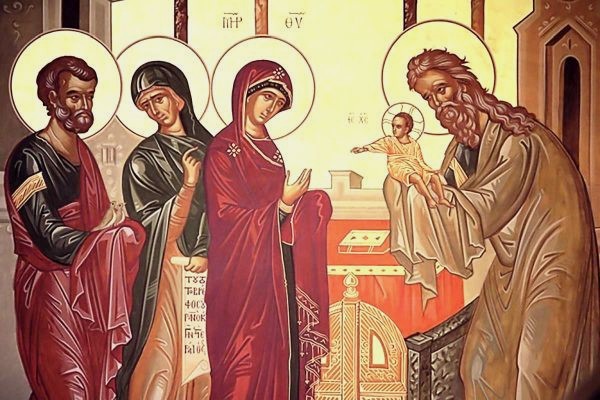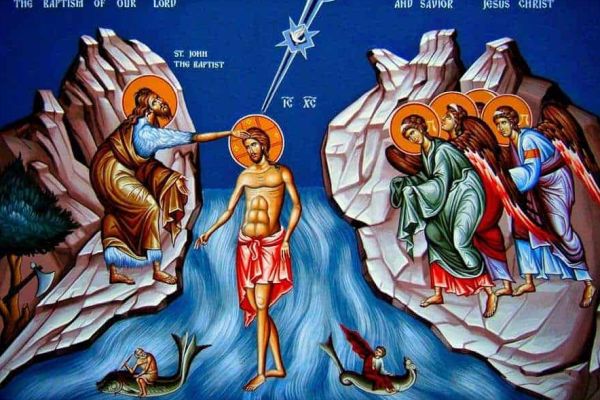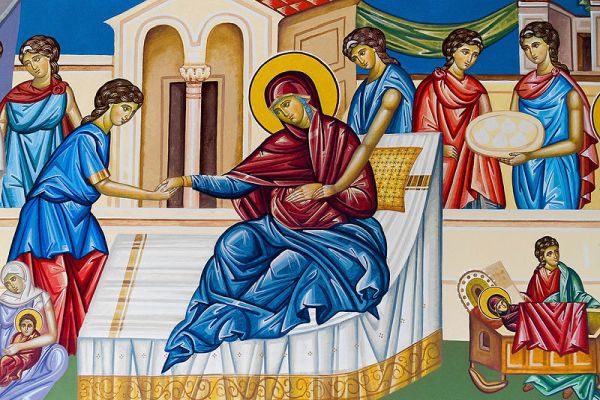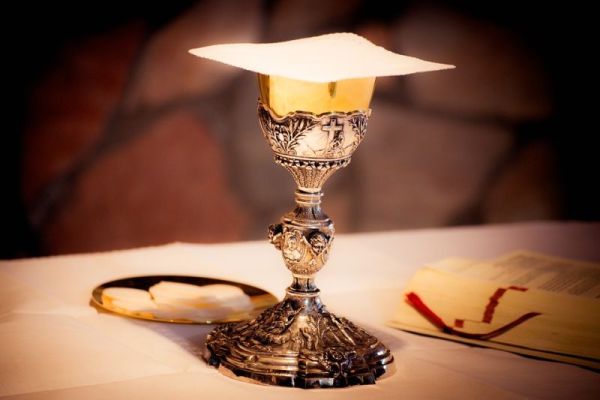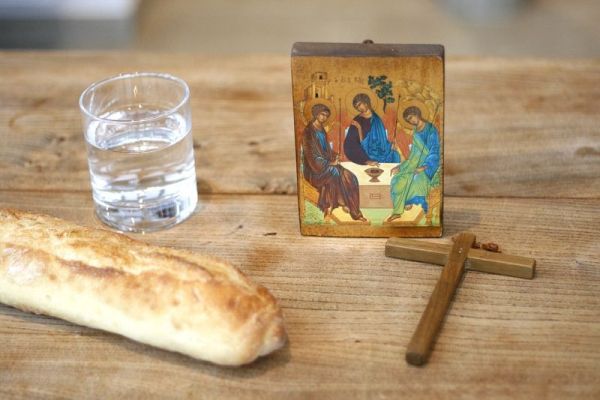Ash Wednesday
For those who have watched the movie “Shadowlands,” you’ve watched a story play out that applies to us as we enter the season of Great Lent. The movie tells the story of C.S. Lewis and his struggle through great sorrow and pain as he loses his beloved wife, Joy, to cancer. Her death tore Lewis apart, sending him into a profoundly deep “dark night of the soul” experience. During this crisis, all of his remarkable apologetics and ability to explain and defend the faith, everything he was so well-versed in writing and debating about, all of his lectures—none of those things really helped him during that grief and struggle.
You can read of this internal wrestling in A Grief Observed, and some of his other books, where in a certain context the struggles and pains of life make the joys of life really, really joyful. Life is meaningful because there is death. Health is good because there are ailments.
And we can take that same perspective and apply it to the great season of Lent.
A Season of Repentance
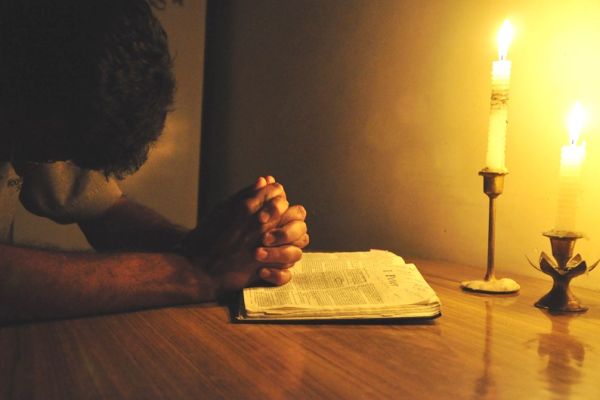
Throughout the rest of the year, we exist in a season of joyful growth, because during Lent, we purposefully engage in a season of repentance. Engaging in extended times of repentance is not something we normally do—in fact it’s something we usually run away from!
Parents make kids eat vegetables because we know it’s good for them. And so as adults, we purposely choose this great season of Lent, not as some sort of self-punishment or a need to flagellate ourselves and writhe on the ground. No, rather it is an invitation from God for us to joyfully enter into this opportunity to engage in these things.
I use these words very carefully: invitation, opportunity. These are not accidental words I’m using, for indeed everything in our Christian life is an invitation from God.
The Invitation
There’s an invitation from God to study His Word, to memorize it, reflect upon it. Meditate on it. It’s an invitation from God to partake of the Sacraments. It’s an invitation to pray, invitation to fast. God does not impose any of these things upon us, nor force us; neither does he condemn us, even if we don’t do it.
In another context, C.S. Lewis said of prayer that, prayer changes me. Think of it: every single time we gather for Tuesday prayer, all-night prayer or in your own personal devotion time—yes we are praying for others and praying for needs, for the world. We’re praying and we are seeing God answer!—but who actually gets the benefit of all of this prayer? We do.
The whole idea of the worship of God is not because God feels sorry for Himself and needs some attention, but rather that He knows us—and He knows that we need to worship and through it be impacted and changed.
So therefore, He extends an invitation, a gracious invitation. Join this journey. Take the opportunity to do something that we normally don’t have time for or are too preoccupied for.
As we participate with Him in this great season of Lent, even if you do one single thing, even if you pray the Jesus prayer every day one time, I promise you it’ll change you. Why? Because you’re doing something on purpose for God to have the space to work in us. That’s all that’s required. The gracious invitation of our Lord to enter into this season, not by force, but by love.
Two Heart Conditions
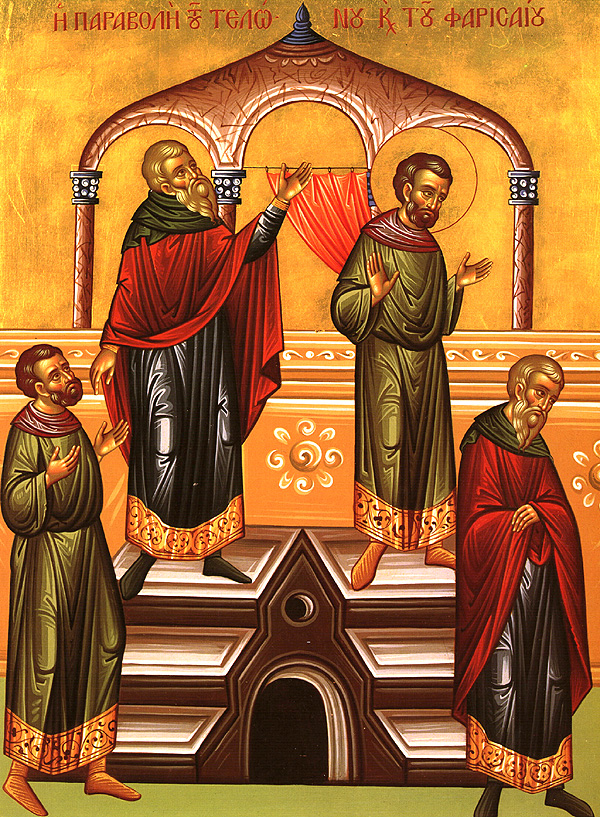
If you have a minute, consider the icon of the Pharisee and the Tax Collector, which is often displayed this time of year. Both men are depicted as they go up to the temple to pray, and then again as they return back home. What you’ll see is that on the way to the temple, the tax collector’s head is hanging down, completely downcast and discouraged, while the Pharisee’s head is lifted high. You can clearly read that he’s pretty proud about all that he’s doing.
But then—look at the second half of the icon. Now, the tax collector’s head is lifted high as he returns home, while the Pharisee’s head hangs down.
This represents again the tax collector’s heart repentance, even though he didn’t even know how to pray properly. Lord, just be merciful to me. Meanwhile, the Pharisee was very proud showing God all of His good things that he had done, and he leaves justified.
Jesus said that those who humble themselves will be lifted up, and those who lift themselves up will be humbled (Matt 23:12). And the season of Great Lent is not a chance to tell God of the good we have done. It’s also not about Him telling us how bad we are, but rather it is an invitation to be honest before God. A chance to remember that we need His help to live continuously in the act of repentance.
Think about this: in the parable of the prodigal son (or sons), the father welcomed both sons into the house. It was an invitation! One son—like the Pharisee—had done really well, lived perfectly, yet his heart kept him outside. The other son did some really foolish things, had sinned greatly, and yet at the welcoming invitation of the father, the younger son went inside. Both sons were invited—but only one had the humility to respond.
And so we see that Lent is an invitation to repentance, because otherwise we never pay attention to those areas of our life that are lacking. Being honest before God is living in the sense of the Jesus Prayer all the time.
We are All Invited
Everything that God does for us in allowing us to be part of this journey is indeed a loving and gracious invitation. But then it’s up to us what we do. We can hang on to the invitation. We can be excited about the invitation! We can frame it, put it on the wall, admire it.
But only some who go to church will leave changed. Others go to church or any kind of service, and they’re not changed. In fact, their hearts can even be more hardened. All are invited—Pharisee and publican, older son and prodigal. But not everyone will accept the invitation.
I encourage you to see this season of Great Lent as simply a loving invitation to journey with Christ. For what purpose? For receiving His blessings, receiving the change in our life, and to see His work in us.
Our responsibility is to put ourselves in the place where God can work on us. His responsibility is to work in us.
That’s all we have to do. Put ourselves continuously in the place where God can work in us. And we do that by prayer, fasting, alms giving, telling others about Christ, Scripture reading and meditation, and all these other things that are part of our normal Christian life. These are not activities, but rather invitations for God to work in us. And one more such invitation is the imposition of ashes.
A Special Invitation
on Ash Wednesday
From the very earliest days of our faith we see the imposition of ashes. Its roots are seen in both the Old Testament and the New Testament.

1. We see that Job sat in ashes as a sign of mourning—and his mourning was because of all the suffering he was going through.
2. Then we see that in the book of Esther, people sat in ashes mourning the judgment upon the people of Israel that was happening before God’s deliverance.
3. We see that in the book of Jonah, the Ninevites sat in sackcloth and ashes—and they even threw sackcloth and ashes on the animals to cry out to God.
Once again, this expression of lament is not intended to make God do something, but is a way to change our own hearts, just like through prayer. These actions change us.
Therefore we identify with what Paul said, “I am not ashamed of the Gospel of Jesus Christ.” (Romans 1:16). On Ash Wednesday, millions and millions of Christians across the world walk around with ashes on their forehead. Walking around like that, we may look like strange creatures, but this is a chance for us to boldly proclaim that we are Christians who are not ashamed to live out our faith, even in spite of being persecuted or mocked.
This, then, is a chance for us to humble ourselves—to receive His invitation. We identify with ashes, which have always been a sign of repentance.
That repentance is not just a one-day thing. Throughout this great season of Lent, continue to return to the prayers of repentance that we prayed, and return to the posture of the repentant sinner.
Truly, God has given us this opportunity for Him to change our lives so that we can become great witnesses for Christ and His Mercy upon us, for what He has done for us, He can do for others.
Let us along with the Psalmist pray, search my heart. Oh, God.

